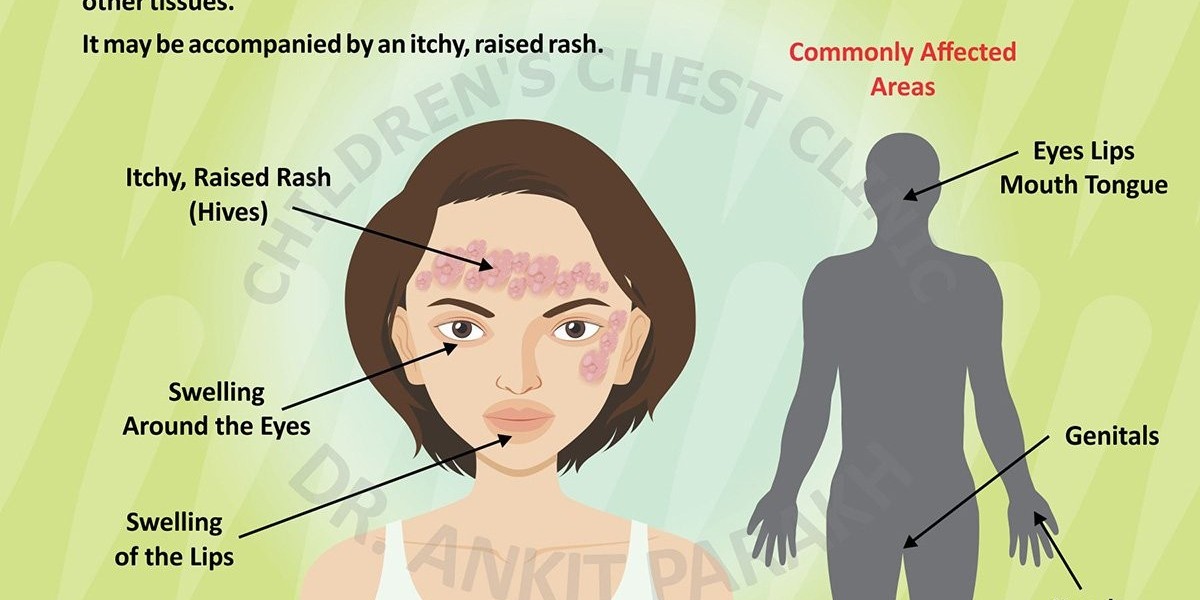Hereditary angioedema (HAE) is a rare but serious genetic condition that causes recurrent episodes of swelling in various parts of the body, including the limbs, face, intestinal tract, and airway. Because of its unpredictable and potentially life-threatening nature, it's crucial to understand what HAE is, how it's diagnosed, managed, and what treatment options are available.
Whether you're newly diagnosed or researching on behalf of someone you care about, here are the essential things you should know about hereditary angioedema.
1. What Is Hereditary Angioedema?
Hereditary angioedema is a genetic disorder that leads to the deficiency or dysfunction of a protein called C1 esterase inhibitor (C1-INH). This protein is vital in regulating inflammation and fluid balance in tissues. When it’s not working correctly, it results in episodic swelling, known medically as "angioedema."
Unlike typical allergic reactions, HAE is not caused by histamine release and doesn’t respond to antihistamines or corticosteroids, which are often used for allergy-related swelling. This makes prompt diagnosis and targeted treatment essential.
2. Types of Hereditary Angioedema
There are three recognized types of HAE:
Type I: The most common form, involving low levels of functional C1-INH.
Type II: Normal levels but the C1-INH protein is dysfunctional.
Type III: Also called HAE with normal C1-INH, usually affecting women and linked to a mutation in the F12 gene.
Understanding the type of HAE is critical to tailoring effective treatment.
3. Symptoms of HAE
HAE symptoms typically include
Swelling in the hands, feet, face, or genitals
Abdominal cramping and pain due to intestinal swelling
Difficulty breathing if swelling affects the throat or airways
Nausea, vomiting, and diarrhea during abdominal attacks
Attacks can last anywhere from 2 to 5 days and may be triggered by stress, trauma, surgery, infections, or hormonal changes.
4. HAE Is Often Misdiagnosed
Due to its rarity and similarity to allergic reactions or other gastrointestinal conditions, HAE is frequently misdiagnosed. Many patients go years without a correct diagnosis, often receiving inappropriate treatments like antihistamines, steroids, or antibiotics none of which are effective against HAE.
In fact, broad-spectrum antibiotics such as cephalexin capsules are sometimes prescribed mistakenly during abdominal attacks, believing the symptoms to be a bacterial infection. This highlights the importance of accurate diagnosis to avoid misuse of medications—even when purchasing cephalexin capsules wholesale for legitimate uses, it's essential that clinicians understand when such antibiotics are truly indicated.
5. How Is HAE Diagnosed?
Diagnosing HAE involves:
Family history evaluation: Since HAE is inherited in an autosomal dominant manner, family history plays a key role.
Blood tests: To measure levels and function of C1-INH and complement proteins such as C4.
Proper diagnosis can take years due to the non-specific nature of symptoms. Awareness and education are crucial for early detection and treatment.
6. Treatment Options for HAE
Management of HAE involves both preventive and on-demand treatments.
On-Demand (Acute) Treatments
C1-INH replacement therapy (e.g., Berinert, Cinryze)
Bradykinin receptor antagonists (e.g., Icatibant)
Kallikrein inhibitors (e.g., Ecallantide)
These medications help reduce the severity and duration of attacks.
Prophylactic (Preventive) Treatments
Long-term C1-INH replacement
Attenuated androgens (e.g., danazol), though side effects limit their use
Monoclonal antibodies like lanadelumab for regular prevention
Unlike allergic reactions, HAE does not respond to epinephrine, corticosteroids, or antihistamines.
7. Living with HAE: Lifestyle Considerations
Managing hereditary angioedema involves more than just medication. Patients need to:
Avoid known triggers, such as trauma or stress
Inform healthcare providers before any medical procedures
Carry emergency medication and identification
Establish a treatment plan with a specialist familiar with HAE
Some people also use preventive treatments before surgery or dental work to avoid triggering an attack.
8. The Importance of Genetic Counseling
Since HAE is inherited, genetic counseling is highly recommended for affected families. It helps people understand their risk of passing the condition on to children and supports early diagnosis in younger generations.
9. Misuse of Antibiotics and the Role of Cephalexin Capsules
As mentioned earlier, one of the pitfalls in managing undiagnosed HAE is the unnecessary use of antibiotics. Cephalexin capsules a commonly prescribed cephalosporin antibiotic are often used to treat infections such as cellulitis or urinary tract infections.
However, in cases of HAE, these symptoms may be mistaken for infections, leading to inappropriate antibiotic use. This is not only ineffective but also contributes to antibiotic resistance. For pharmacies and healthcare providers dealing in cephalexin capsules wholesale, this underscores the importance of accurate diagnosis and antibiotic stewardship.
Wholesale buyers should ensure that prescribers are aware of the differential diagnoses that may mimic infection symptoms especially in rare diseases like HAE.
10. Support and Advocacy
Organizations such as the HAE International (HAEi) and US Hereditary Angioedema Association (HAEA) offer resources, patient networks, and education for patients, families, and clinicians. Engaging with these groups can provide emotional support, help navigate insurance and treatment options, and keep patients informed of the latest research.
Final Thoughts
Hereditary angioedema is a complex but manageable condition. With the right diagnosis, treatment, and education, individuals with HAE can lead full and productive lives. One of the keys to better outcomes is awareness not just among patients, but also among healthcare providers and pharmacists.
Even something as routine as prescribing or purchasing cephalexin capsules wholesale can intersect with this condition when misdiagnosis occurs. It's a powerful reminder that precision in diagnosis and treatment is essential not only for patient safety but also for the responsible use of medications.
If you suspect HAE, seek a specialist's opinion. Early diagnosis and targeted therapy can make all the difference.








